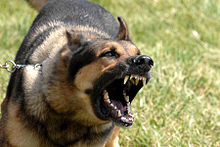Social-status is an extremely powerful part of human social life. High status individuals are usually protected and/or privileged by the group and its rules, and often receive extra resources. High status also tends to increase sexual desirability (though not universally so and only in combination with other factors). However, status is largely in the minds of the group members. There is little, if anything, that we could call status that is independent of the perception of other group members. So what kind of things work to establish social status in the mind of group members?
One way to approach this question is to identify two basic categories of status. They are Dominance-Status and Cooperative-Status.
 Dominance-status arises out of a group member’s ability to present a threat of some kind to other group members. In simple terms, it is about the “pecking-order”. It is about the strongest wolf in a pack. The dominant member of the group is not necessarily nice or fair to other members, because they can ultimately resort to some form of force to maintain their superiority. It should be noted, however, that by “force” we mean any legitimate method of presenting a threat. This could be physical force, or it could be the means to influence others to exert physical force, by sexual influence, charisma, official mandate, or any other means.
Dominance-status arises out of a group member’s ability to present a threat of some kind to other group members. In simple terms, it is about the “pecking-order”. It is about the strongest wolf in a pack. The dominant member of the group is not necessarily nice or fair to other members, because they can ultimately resort to some form of force to maintain their superiority. It should be noted, however, that by “force” we mean any legitimate method of presenting a threat. This could be physical force, or it could be the means to influence others to exert physical force, by sexual influence, charisma, official mandate, or any other means.
It should be noted, however, that this is also a distinct concept from power, because in dominance status the methods of force must be accepted by the group as a whole. Only certain legitimate methods are accepted by the group – a murderer, for example, may be feared, and may be powerful, but they do not usually have any social status. Ultimately the dominance still occurs “within the rules”, though these rules are generally a much looser version in comparison to the commonly held moral standards of the group.
Examples of high dominance-status
- Leader of a warlike tribe
- Charming life-of-the-party (though perhaps they are viewed as providing entertainment)
- Sexually manipulative person
Cooperative-status arises from the ability to offer the group or members of the group something as part of membership. For example, this might be a strong warrior that fights for the group, or it might be a doctor that heals members of the group. They perform some role in the group for which they are respected and elevated in the group’s eyes. They win acceptance and a place in the group by contributing in a positive way. Others are able to recognise the role they play. Their contribution is admired.
Examples of high cooperative-status:
- Brave warrior
- Intellectual/wise elder
- Inventor or successful trader
- Healer
Both types of status are usually zero-sum – there is only so much status to go around. There is only so much respect available in each group member’s mind. There is still some room for positive (or negative sum movement) – people can have overall less or more regard and respect for others in the group. However, there is probably an upwards limit.
So, how should we feel about these two forms of status, normatively speaking? Well, in a group where most status opportunties are dominance based, group members are going to try to become very good a presenting a threat to others. This skillset is not neccessarily useless to the group (eg. ferocity in warfare with opposing group), most of the time the harm to group members is going to be greater than the benefits. Groups who are too focused on dominance will lose out to cooperative groups who spend less resources fighting themselves.
In contrast, cooperative status requires someone to adopt behaviours that (appear to) increase group welfare. While the status equation is zero-sum, group welfare is not. As group members optimise to gain status, the group benefits more and more. The main risk is then that group members are less habituated to fierce competition, and so are less prepared for intergroup conflict. Now if you artificially train the same combative skills in a contained, efficient and less harmful way, you’re group is looking good…